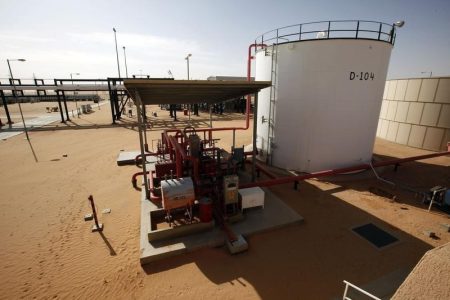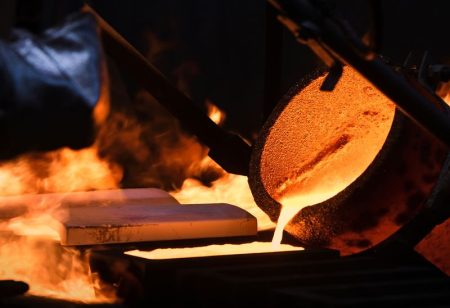By David Shepardson
WASHINGTON (Reuters) -Two influential Democratic U.S. senators urged the Energy Department to take steps to boost U.S. battery manufacturing and next-generation battery research, citing China’s dominance and export controls, according to a letter seen by Reuters.
Senate Intelligence Committee Chair Mark Warner and Energy Committee Chair Joe Manchin cited experts saying that the United States is “ten to twenty years behind Asia in commercialization of battery technology,” and noted that China accounts for more than 75% of battery cell production.
“The U.S. must become a leader in manufacturing batteries and battery components, while securing our supply chains for the materials that make up those components,” the senators wrote in a previously unreported letter seen by Reuters, citing China’s decision last month to restrict exports of graphite, critical to manufacturing battery anodes.
China dominates the global EV battery supply chain including production of graphite – the single largest component.
The letter noted in 2022 the United States produced less than 10% of lithium-ion batteries in 2022 and said demand is expected to grow over seven times by 2035.
The letter wants a committee briefing by Dec. 1 “on ongoing research and development of next-generation battery technologies.”
Lithium-ion batteries, the Pentagon has said, are crucial to thousands of military systems from “handheld radios, to unmanned submersibles and to future capabilities like lasers, directed energy weapons and hybrid electric tactical vehicles,” the letter noted.
China accounts for 70% of the global production of lithium-ion batteries, the letter said, noting of five critical minerals required for most lithium-ion batteries, China “controls between 60-100% of the mining or refining for these minerals.”
The letter also said “it is critical that the U.S. lead in next-generation battery technology and alternative chemistries” and coordinate with the Department of Defense and other national security agencies “to support procurement of innovative, U.S.-developed energy storage technologies.”
A spokesperson for Energy Secretary Jennifer Granholm did not immediately respond to a request for comment.
Read the full article here















